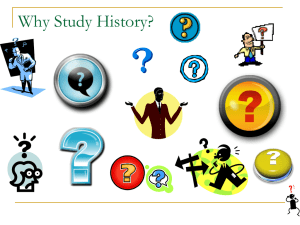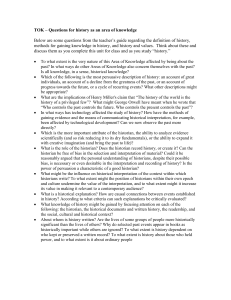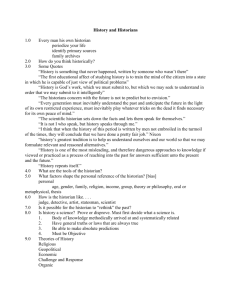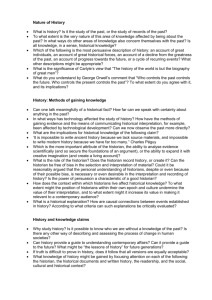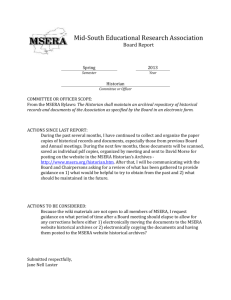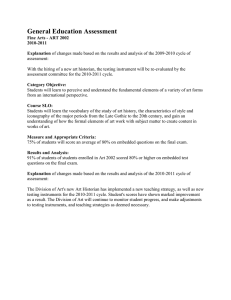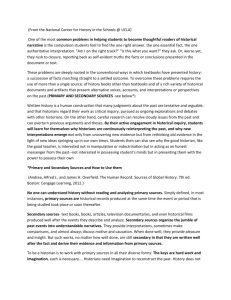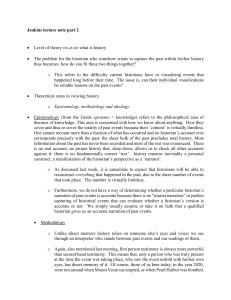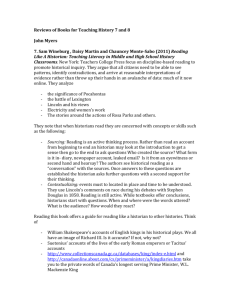1.0 History & Historians 2
advertisement
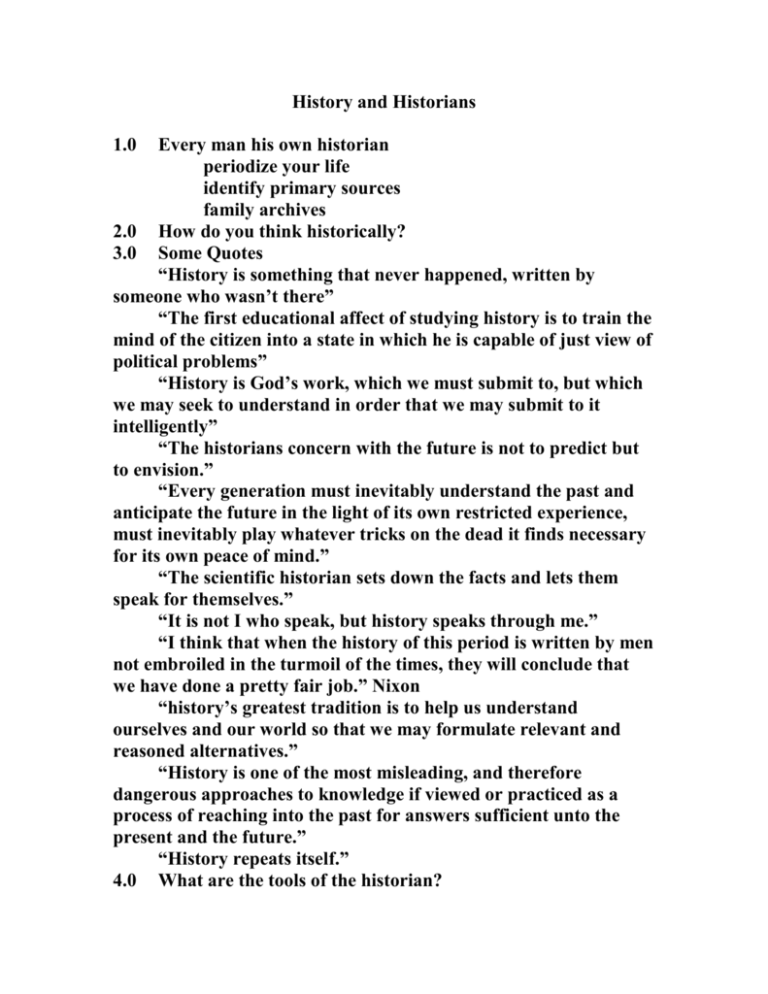
History and Historians 1.0 Every man his own historian periodize your life identify primary sources family archives 2.0 How do you think historically? 3.0 Some Quotes “History is something that never happened, written by someone who wasn’t there” “The first educational affect of studying history is to train the mind of the citizen into a state in which he is capable of just view of political problems” “History is God’s work, which we must submit to, but which we may seek to understand in order that we may submit to it intelligently” “The historians concern with the future is not to predict but to envision.” “Every generation must inevitably understand the past and anticipate the future in the light of its own restricted experience, must inevitably play whatever tricks on the dead it finds necessary for its own peace of mind.” “The scientific historian sets down the facts and lets them speak for themselves.” “It is not I who speak, but history speaks through me.” “I think that when the history of this period is written by men not embroiled in the turmoil of the times, they will conclude that we have done a pretty fair job.” Nixon “history’s greatest tradition is to help us understand ourselves and our world so that we may formulate relevant and reasoned alternatives.” “History is one of the most misleading, and therefore dangerous approaches to knowledge if viewed or practiced as a process of reaching into the past for answers sufficient unto the present and the future.” “History repeats itself.” 4.0 What are the tools of the historian? 5.0 What factors shape the personal reference of the historian? [bias] personal age, gender, family, religion, income, group, theory or philosophy, oral or metaphysical, thesis 6.0 How is the historian like. . . . judge, detective, artist, statesman, scientist 7.0 Is it possible for the historian to “rethink” the past? 8.0 Is history a science? Prove or disprove. Must first decide what a science is. 1. Body of knowledge methodically arrived at and systematically related 2. Have general truths or laws that are always true 3. Be able to make absolute predictions 4. Must be Objective 9.0 Theories of History Religious Geopolitical Economic Challenge and Response Organic Great Man 10. Obstacles to the Historian who seeks truth objectively access to sources, censorship, travel, classified documents, distant past evaluation of sources language barriers nationality Time and Expense travel permission [visa & passport] Asking the right questions Assessment and Evaluation What is fact? What is important?


